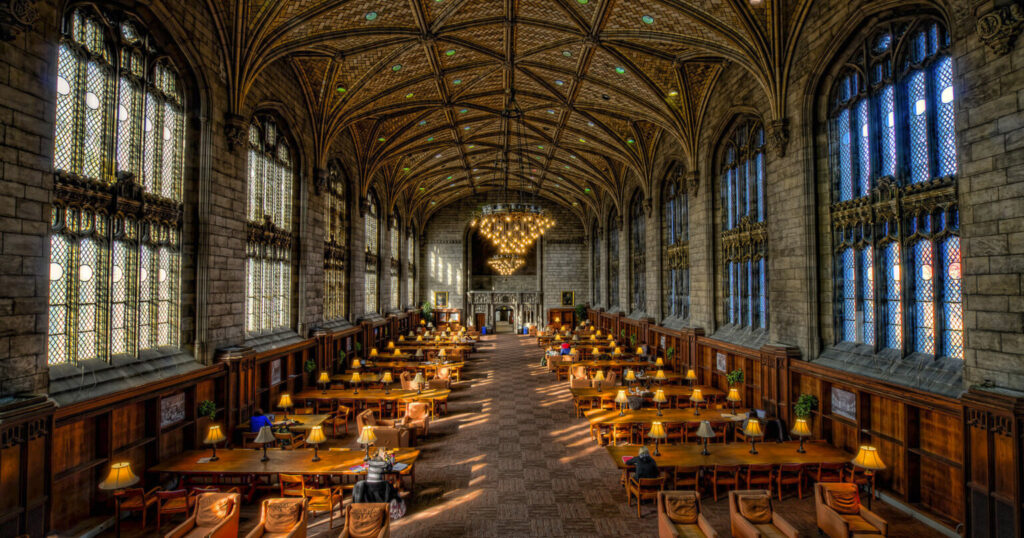The public library is the hub and center of the community. There are approximately 16,000 public library buildings in cities, towns, and incorporated areas of all sizes across the U.S. today, and they offer a wide variety of resources, services, and benefits all for free to users—from story times for kids to help with job searches to gardening classes and beyond. Library benefits are available to all, regardless of income level, background or locale.
The services libraries provide revolve not just around stacks of books, but also around internet connection and cutting-edge digital technologies that help people fulfill basic needs and pursue a wide range of interests. These services extend into the community, as well, with many libraries using bookmobiles and outreach services to reach patrons wherever they are.
American adults of all age group visited libraries in the past year, including 62% of those aged 16-17, 57% of those aged 18-29, 59% of those aged 30-49, 51% of those aged 50-64, and 40% of those aged 65+.
Ninety-one percent of Americans ages 16 and older say public libraries are important to their communities; and 76% say libraries are important to them and their families. Forty percent of people living with a disability state that library help applying for government services is “very important” to them.
School libraries are essential for student life and growth. They are places where kids of all ages can share ideas and thoughts with their peers and the global community, both online and face to face. As a destination for on-site and virtual personalized learning, the school library is a vital connection between school and home that prepares students for college, a career, and life.
School librarians are the leaders and unsung heroes of these spaces, ensuring that the school library environment provides all members of the school community access to information and technology, connecting learning to real-world events. By providing access to an array of well-managed resources, school librarians enable academic knowledge to be linked to deep understanding.
Academic libraries serve colleges and universities, their students, staff, and faculty. Intellectual curiosity is the cornerstone of academic libraries, and they offer students the spaces and resources they need to excel in their classes, complete their degrees, and enjoy post-graduation success. Academic libraries also help college and university faculty with their research, teaching, and support.
Some larger institutions may have several libraries on their campuses dedicated to serving particular schools such as law and science libraries.
A Tribal library is a library established on federal- and state-recognized tribal lands and Sovereign Indigenous Nations.
Tribal libraries are as diverse as the Indigenous communities they serve, working as archives, language repositories, heritage centers, museums, and a gateway to local, state, and federal service programs, learning centers, and community gathering places for Indigenous peoples.
Special libraries are often located in unique spaces, such as corporations, hospitals, the military, museums, law firms, advertising agencies, professional associations, private businesses, and the government. These libraries are most-often not open to the general public, but they are invaluable to their institutions, providing books, research spaces, archives, support, and more.
Photo: Harper Library at the University of Chicago, by Rick Seidel, via Flickr CC BY 2.0
